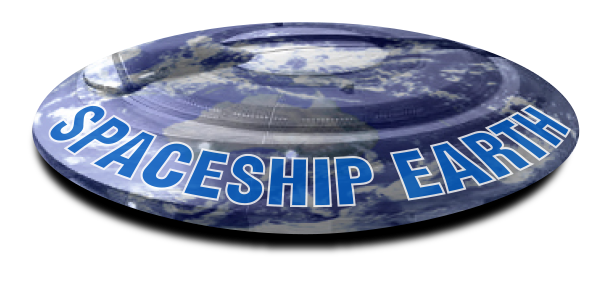Spaceship Earth
Spaceship Earth is an exciting new course that teaches existing curriculum within an education for sustainability framework. Key sustainability concepts are presented in an interpretive context that will engage and fascinate students.
Basic Premise
New Zealand is planning to send a huge manned spaceship on a voyage of discovery around our solar system which will take 200 years. The class is asked to help decide what the spaceship would need to have (or not have) to sustain itself for that length of time.
Learning objective
Earth is like a huge spaceship – a materially closed*, finely balanced, finite system
This extended ‘thought experiment’ will help students discover a number of concepts related to the nature and sustainability of materially closed ecosystems – the point being that earth itself is a materially closed, finely balanced and finite ecosystem and it’s sustainability is dependent on choices that people make.
Flexible course structure
Spaceship Earth can be customised to suit time, level and curriculum requirements.
The course is divided into ten separate modules each focussed on a different area of sustainability. The course would ideally be taught in one term with one module per week taught in 3-5 lessons. There are a huge number of acticities and projects to support and enhance the course.
New Curriculum
The course has been developed in order to deliver learning objectives from the new NZ Curriculum – within a sustainability for education framework.
Each module has at least one, or usually more, prescribed links to specific achievement objectives in various learning areas especially Science, Social Sciences, Technology and Health. By using the activities included – such as inquiries, experiments, projects and readings – there is flexibility and scope to cover a wider range of learning areas and learning objectives at the teachers discretion.
The course has been designed to reflect the vision, principles and values of the new curriculum and to help develop students’ key competencies. In particular, the whole course relates to the principles of ‘Coherence’ and ‘Future focus’ and also the values of equity, ecological sustainability, and community and participation.
Presentation of course content
Each module is presented in a Teacher’s Guide with:
- Module plans
- Vocabulary
- Background information
- Activities: experiments, inquiries, readings, projects and homework ideas
- Blank worksheets which can be copied off
- Rubric showing achievement objectives and assessment criteria
- Additional support material will be available on the GreenKiwi website.
The Spaceship Earth Teachers’ Guide is free to all New Zealand teachers.
* The earth’s ecosphere is open to energy flows and dissipation (e.g. light and heat) but it is effectively closed with reference to matter (e.g. elements).

The modules
and key learning objectives
Earth and the Solar System
Discover the solar system. Apart from free energy from the sun the earth is a finely balanced, closed and finite system – like a huge spaceship!
Energy
Energy is transformed from one type to another. There are many uses and sources of energy. Discover clean and efficient energy.
Water
The Water Cycle. Water is a finite, non-renewable resource. Water is crucial for life and must be looked after.
Food
Food is recycled through all ecosystems in food chains/webs. The benefits of diversity of life and food.
Goods and materials
There is a lot of STUFF. Some is needed and some isn’t.
Air
Clean air is important for Life. Find out about the atmosphere, the weather and the carbon cycle.
Waste
There is no such thing as waste in a closed system – it is either ‘food’ for something else – or a poison.
Culture and employment
Learn what types of things people do and how people maintain their well-being and sustain the strength of their cultures.
Population and consumption
Learn about population demographics and how they relates to consumption patterns around the world. Ecological footprint.
Citizenship and responsibility
Learn why all people must co-operate, be responsible and live within the limits and rules of the system.
